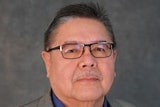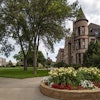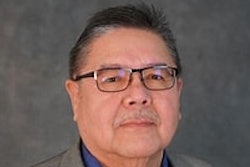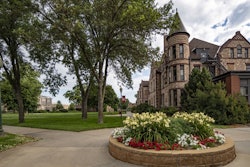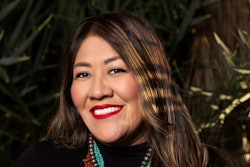Dr. Anton Treuer’s passion for the Ojibwe language goes beyond the purview of academic study. As an assistant professor of Ojibwe language in the Languages and Ethnic Studies Department at Bemidji State University in Minnesota, Treuer’s personal and professional life revolves around the study and preservation of the language and culture.
Surprisingly, Treuer is not an Ojibwe native speaker. He learned the language as an adult when he returned to his homeland in and around the Leech Lake Ojibwe Reservation in Minnesota. He believes maintaining the language is tied to the survival of Ojibwe tribal identity.
“Language is a fundamental attribute of tribal sovereignty,” he says. Without language, Treuer believes all tribal peoples lose an essential cornerstone to their identities.
For Ojibwe people, Treuer says, spoken language is the only tool used to officiate ceremonies. Traditionally, Ojibwe is not written.
“Our belief is that Ojibwe (language) is what our soul understands. It is embedded in our sense of identity,” he says.
This was not always the case. After high school, Treuer recalls his main goal was to get out of his hometown of Bemidji to pursue a career in law or politics. After finishing his bachelor’s at Princeton University, he returned home with a determination to learn more about his Ojibwe background. He devoted himself to cultural activities and soon encountered Archie Mosay, a traditional Ojibwe elder. Under Mosay’s tutelage he found the path he continues to follow today.
Dennis Jones, professor of Ojibwe language at the University of Minnesota, regards Treuer as a language genius.
“The speed at which he learned the language was phenomenal,” says Jones, a native Ojibwe speaker from the Nigigoonsiminikaaning First Nations Reserve in Ontario. “I use his language materials in my own classes here at the university.”
With the support of awards from the National Endowment for the Humanities, the American Philosophical Society, the National Science Foundation, the Bush Leadership Fellows Program and a fellowship from the John Simon Guggenheim Foundation, Treuer is working on Ojibwe literacy and vocabulary projects.
These projects address the unique challenges to immersion teachers of the Ojibwe language as they seek to teach subjects that are not indigenous to the culture, such as algebraic formulae and scientific principles. This work, according to Treuer, is part of a massive undertaking to expand the usage of the language and help ensure its vibrancy.
“A language lives when it can be used for everything in life, not just certain parts,” he says.
Treuer brings together groups of fluent speakers in intensive brainstorming sessions to discuss vocabulary for teaching a variety of topics. He and his team record and transcribe the sessions, which are being used to create a series of children’s books as well as other teaching materials and books. He will also publish a comprehensive book of Ojibwe grammar.
Treuer’s passion for the Ojibwe language is also driven by a self-described sense of urgency.
“Ojibwe is at a make-or-break time,” he says. “There are fewer than 1,000 fluent speakers in the U.S.”
Of the approximately 200 spoken indigenous languages in the U.S., Treuer estimates 180 will become extinct within 30 years. He is determined to ensure that Ojibwe will not be among them. His language projects are focused on creating efficient, functional instruction materials that will be easily available to teachers.
At 40, Treuer shows no sign of slowing down; he describes a feeling of “fire” about his work.
“I don’t want my children to grow up like many Americans who have lost touch with their heritage, their connection to place and language,” he says.
